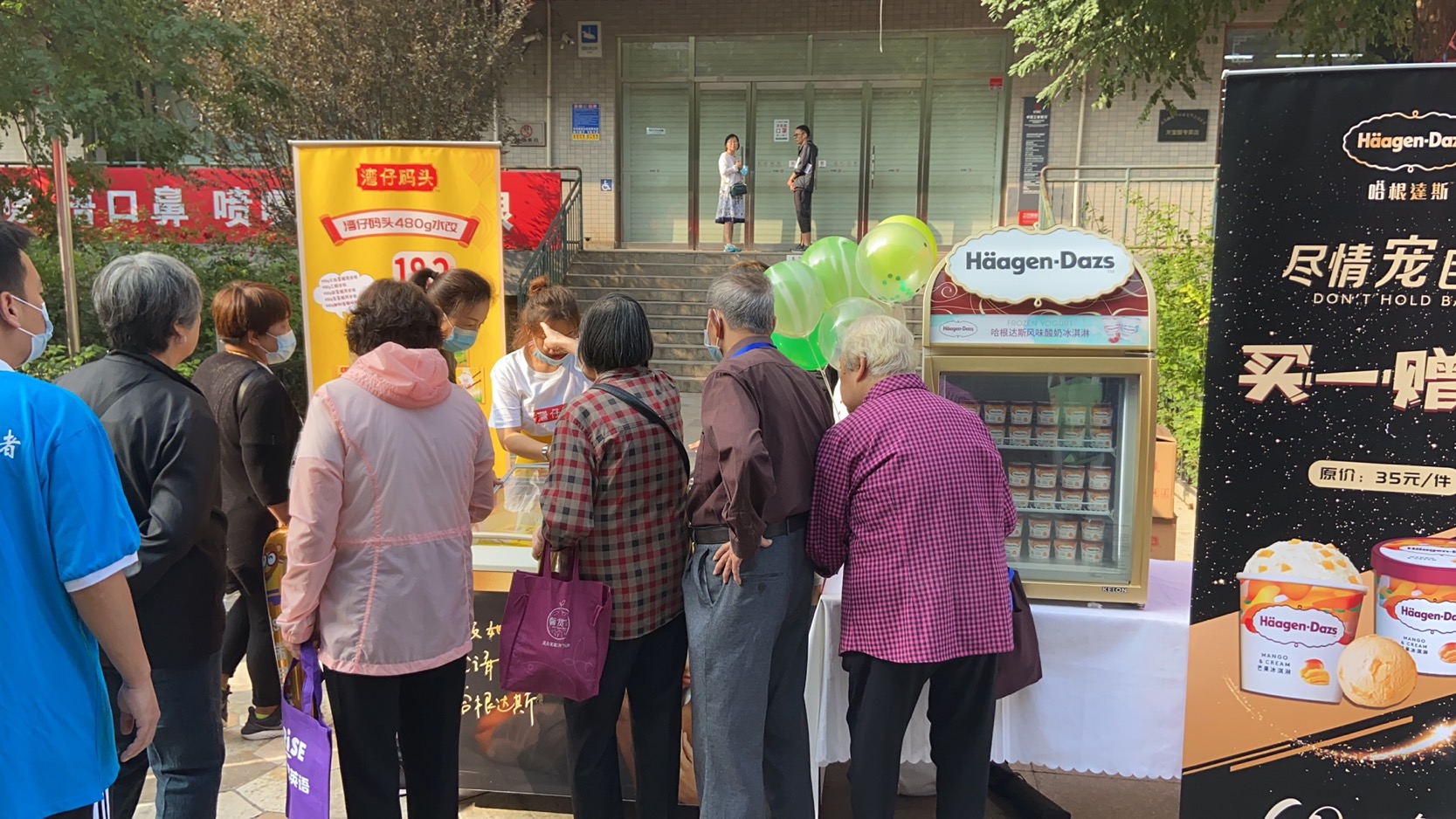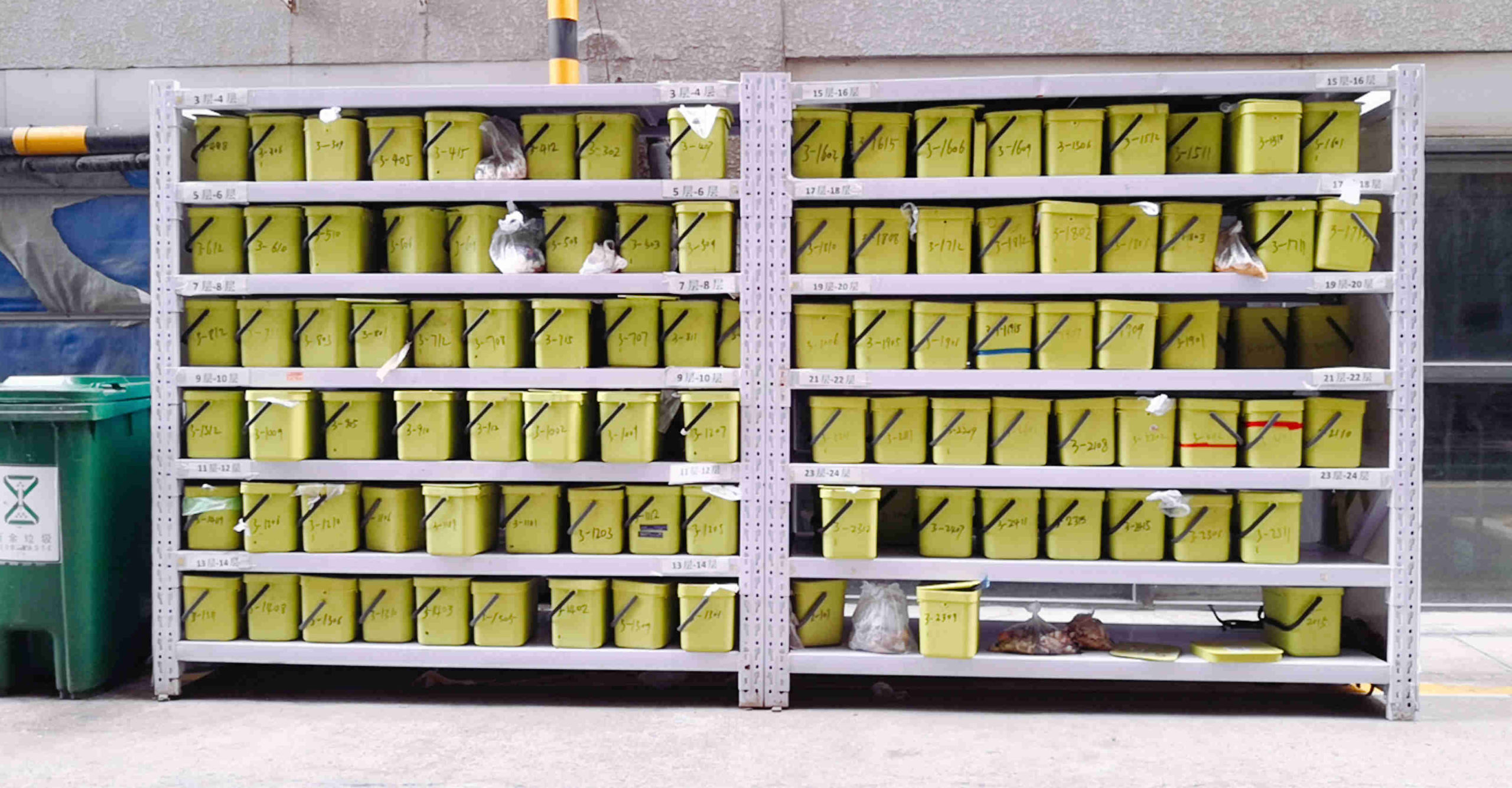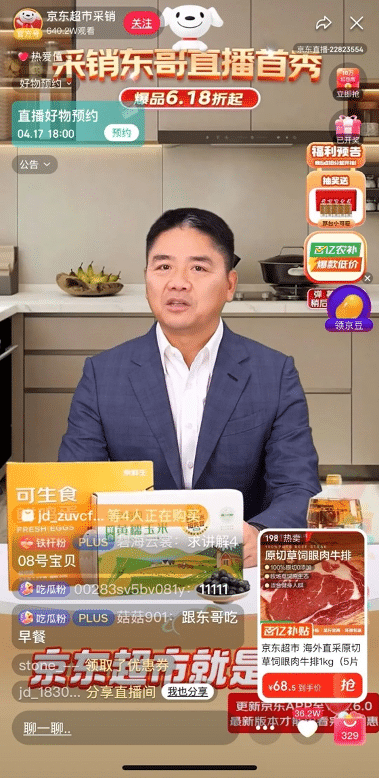Sep 28, 2020|
JD.com Makes Waste Sorting Fun and Rewarding for Beijing Residents
by Hui Zhang
“We throw out trash every day, but it never occurred to me that I could get an ice cream by doing a good job sorting waste,” said a resident surnamed Chen living in the Beijing Economic-Technological Development Area (BDA), located in the south of Beijing. Chen used the 1,750 “mung beans” she earned in the past two months as a reward for sorting waste to buy her grandson a Häagen-Dazs ice cream. Her friend redeemed 1,290 “mung beans” for a box of eggs for her family.

Local Residents Exchanging “Mung Beans” for Ice Cream
The “mung bean” is an integral part of a digital waste sorting WeChat mini-program developed by JD to empower residents in BDA to not only comply with China’s new waste sorting regulations, but to have fun and earn points doing so. This initiative is through a cooperation with the BDA starting from September 2019 to implement a digital platform that makes trash sorting effective and convenient.
The program has kicked off with 19 housing communities in the area participating. With the initiative, residents in the BDA are equipped with a digital waste sorting mini-program called “Sorting Space” (分类空间站), and can earn bonus points for sorting their waste correctly. Bonus points can be exchanged for daily necessities via a platform embedded in the mini-program or at the offline bazaars organized randomly by both JD and local housing communities.
Residents involved in the program will be given a small green bucket for their kitchen waste. Each bucket is affixed with a QR code, which is then bundled with each family’s WeChat account. Residents put the buckets in a designated collection area at the entrance of their building, and then someone in the housing compound’s management will scan the QR code on the bucket, weigh the waste and check if it has been sorted correctly. If correct, residents will be allotted bonus points. The program also serves as an education tool to help residents familiarize the regulations – if they sort incorrectly, the WeChat mini-program will guide residents on how to sort the waste correctly.

In addition to the designated buckets for kitchen waste, residents will also receive a reusable bag (also affixed with a QR code) to put their recyclables in. Third party recyclables processing companies will then evaluate the recycled items and grant bonus points to residents.
To involve more residents, JD and local communities organized an offline bazaar in September inviting over 10 brands including Häagen-Dazs and Yili to make it easy for local residents to exchange points for products on site.
“If you build a product to be convenient and fun, consumers will embrace it with open arms,” said a representative of the program at JD. “This is what we’re doing with our trash sorting program – using our technology to make people’s lives easier, and make our communities cleaner.”
This is not JD’s first effort in the waste sorting space. Last year, JD’s AI team developed a solution that enables people to take a photo of the type of waste they have and be guided on how to dispose of it properly. JD Business, JD’s enterprise procurement channel, is providing supplies on its platform (b.jd.com) and leveraging its logistics capabilities to help local companies comply with the recycling policies. In addition, JD also launched the first demonstration park for trash sorting at JD’s Beijing Asia No.1 logistics park including labels with trash disposal guidance for packages, and arrange a special area for trash sorting.



 300,000 kg of Unsalable Kiwi Get a Second Life with JD
300,000 kg of Unsalable Kiwi Get a Second Life with JD



